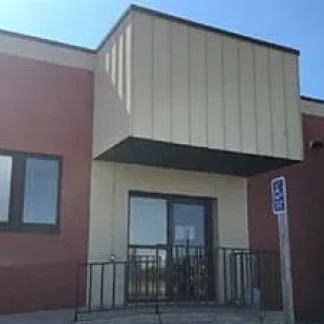Professional Services Group - Kenosha Clinic
Professional Services Group – Kenosha Clinic is a private rehab located in Kenos...
Kenosha Human Development Services (KHDS), a nonprofit community agency, works to help all people in the Kenosha area to lead healthy, productive lives. Kenosha Human Development Services offers mental health and addiction services.
At Kenosha Human Development Services, they believe that the right support and the right skills can make all the difference. They aim to help anyone who comes to them for help for their behavioral health needs.
Some of the programs offered by Kenosha Human Development Services include Adult and Juvenile Crisis, KARE Center, Court Liason Services, CARA Grant Recovery Coaches, AODA Specialist, Community Support Program, and Comprehensive Community Services. The KARE Center is an eleven-bed community based residential facility that serves individuals who need to stabilize or detox.
Contact us for more information: (262) 764-8555

Connect with Kenosha Human Development Services by calling their admissions team directly.
(262) 764-8555 Website Get DirectionsResearch clearly demonstrates that recovery is far more successful and sustainable when loved ones like family members participate in rehab and substance abuse treatment. Genetic factors may be at play when it comes to drug and alcohol addiction, as well as mental health issues. Family dynamics often play a critical role in addiction triggers, and if properly educated, family members can be a strong source of support when it comes to rehabilitation.
In individual therapy, a patient meets one-on-one with a trained psychologist or counselor. Therapy is a pivotal part of effective substance abuse treatment, as it often covers root causes of addiction, including challenges faced by the patient in their social, family, and work/school life.
Life skills trainings involve all the skills a person must have in order to function successfully in the world. These include time management, career guidance, money management, and effective communication. Truly successful addiction recovery is based on the ability to not only live substance-free, but to thrive. Life skills teaches the practical necessities of functioning in society, which sets clients up for success in life, and therefore sobriety.
In individual therapy, a patient meets one-on-one with a trained psychologist or counselor. Therapy is a pivotal part of effective substance abuse treatment, as it often covers root causes of addiction, including challenges faced by the patient in their social, family, and work/school life.
Life skills trainings involve all the skills a person must have in order to function successfully in the world. These include time management, career guidance, money management, and effective communication. Truly successful addiction recovery is based on the ability to not only live substance-free, but to thrive. Life skills teaches the practical necessities of functioning in society, which sets clients up for success in life, and therefore sobriety.
Life skills trainings involve all the skills a person must have in order to function successfully in the world. These include time management, career guidance, money management, and effective communication. Truly successful addiction recovery is based on the ability to not only live substance-free, but to thrive. Life skills teaches the practical necessities of functioning in society, which sets clients up for success in life, and therefore sobriety.
Professional Services Group – Kenosha Clinic is a private rehab located in Kenos...
Childrens Service Society – Kenosha is a private rehab located in Kenosha, Wisco...
Kenosha VA Community Based Outpatient Clinic provides a full range of behavioral...
Aalto Enhancement Center is a private rehab located in Kenosha, Wisconsin. Aalto...